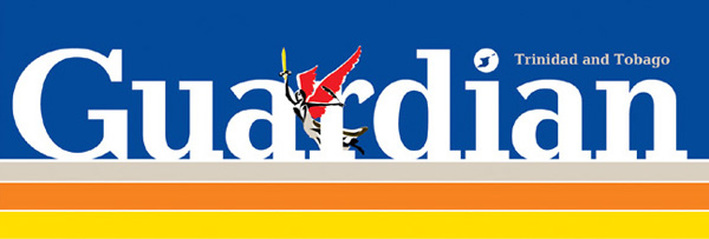One concern about increased militarism in the Caribbean was what it meant for law enforcement in T&T and the blurring of the boundary between policing and military operations. Most specifically, when a State becomes more militarised so do those it deems criminals, not to mention the wider culture of the society itself.
There is no better example of this than the US where something academics call the “permanent war economy” seeps into everything, including the majority of public- and privately-funded scientific research, technological advancement, entertainment and policing. Furthermore, lobbyists connected with the arms industry and its limitless subsidiaries now drive much political decision-making.
Nowhere is this better documented than in Andrew Feinstein’s formidable book, The Shadow World: Inside the Global Arms Trade. For more than ten years now the US has been embroiled in the war on terror. President Obama’s military drones rain down missiles on suspected terrorists daily.
And so it has come to pass that similar drones to those used in the war on terror are being tested and proposed as tools for local policing at home. The Orwellian dystopia of the future is already knocking at the door. All this brings us to our own situation. Minister Jack Warner has a portfolio to attend to. Tackling our crime situation is obviously a difficult job and remedies are desperately needed.
However, the suggestions that the military should—outside of exceptional circumstances—be given the same arrest powers as the police smells of short-termism and a lack of concern for the long-term consequences to wider local culture and society. A military with police powers is not a long-term fix. The cynic might suggest it is a short-term push to lower crime figures in a quest for re-election.
Here is a simple list of some objections to the minister’s proposal.
1) The military is trained in the use of deadly force, and to respond to natural disasters; they are not trained in dealing with everyday, normal situations, the law, or criminal evidence.
2) It creates opportunities for those in political power to use the military against their opponents.
3) It undermines any confidence the public has in the police force and could produce discontent between the police and the army.
4) There is no body or commission the public can turn to should military personnel abuse their new powers.
5) There are massive legal implications.
Another issue the minister’s proposal obscures—yet again—are the high levels of corruption that plague our nation and which contribute greatly to general lawlessness. If those with the money, connections, and political sway get away with breaking the law, it is no surprise that those with little money, connections, and political sway see law-breaking as a successful strategy for getting what they might deem is theirs. Gangsterism, after all, knows no class boundaries.
Will the minister’s army of 1,000 also be going after those higher-class members of society who break the law or is the proposed offensive only aimed at low income members of our society who in many situations could point to historical and cumulative disadvantages against certain areas and social groups?
Neo-colonialism isn’t some fancy academic term; it is the reality of our modern nation. It is the legacy bequeathed to us from our colonial past, and the structural reality of racism, classism, corruption and nepotism that abounds.
Our economy, social structure, and political set-up are all remnants of the system set up and left by others. It has always been up to us to remake that but the Caribbean countries were sadly left divided by race, class and ethnicity, and tied to the inevitable consequences of that.
To disconnect our crime problem from the larger historical process and claim we can fix the problem by putting the military permanently on the streets will not make our society better or even safer in the long term. Rather, it will stretch the already existing divisions between rich and poor, making our society more dangerous, and undermine our democracy itself.
http://guardian.co.tt/columnist/2013-01-14/who-will-guard-guards

 RSS Feed
RSS Feed